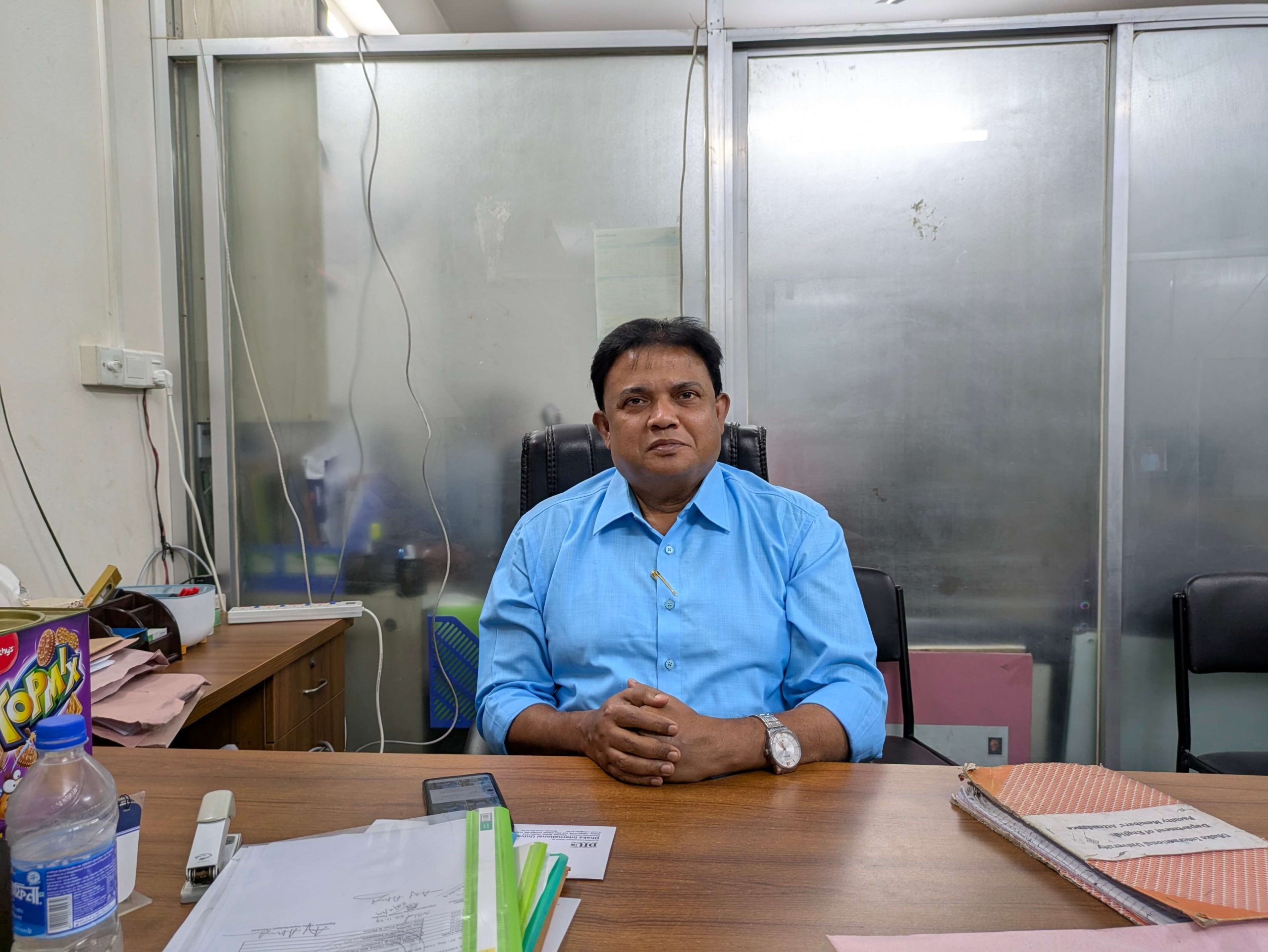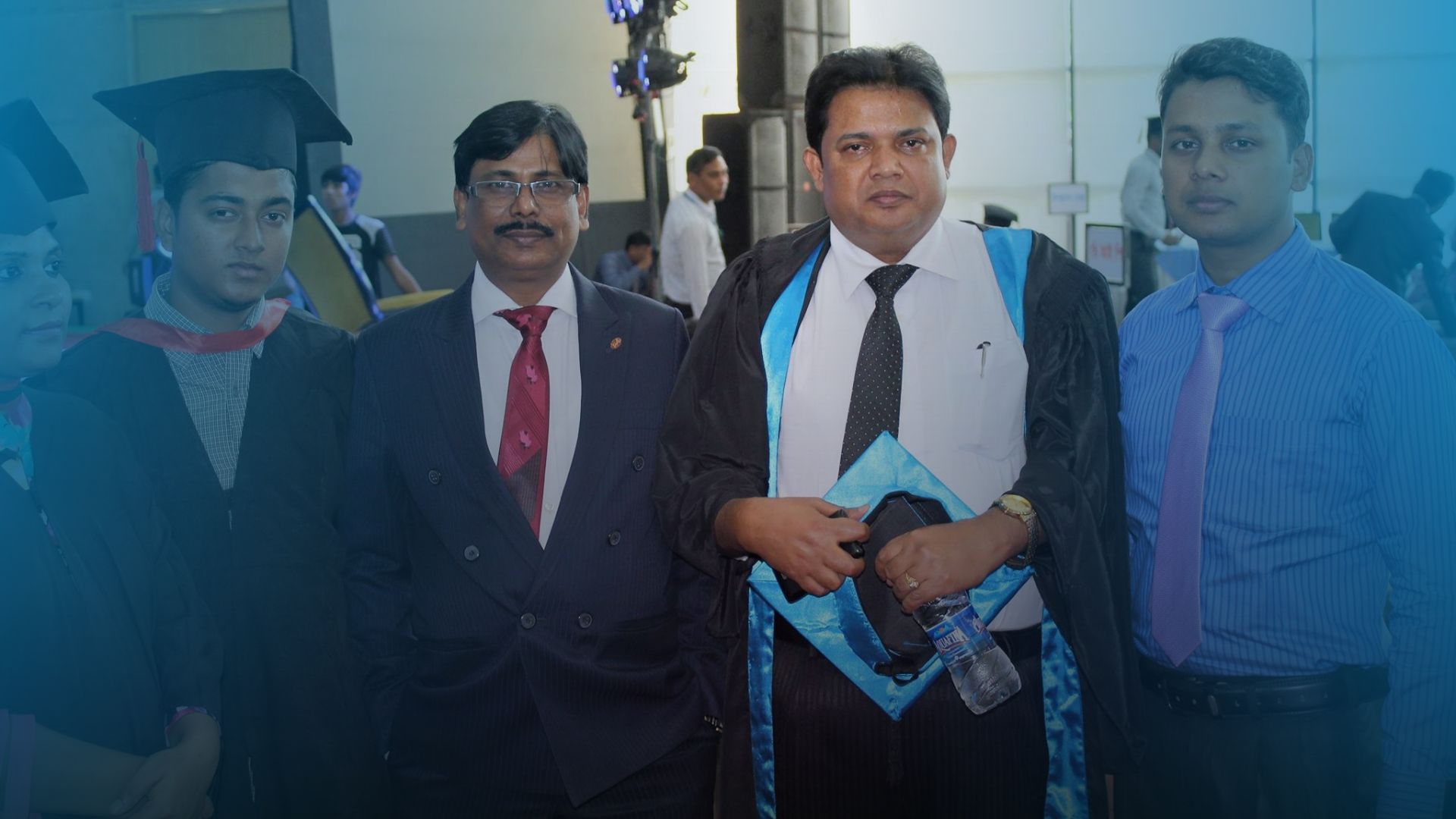In a recent appearance on ATN News, Professor Dr. Sazzad Hossain, an esteemed academic and Proctor at Dhaka International University (DIU), shared his thoughts on the newly introduced education curriculum in Bangladesh. As an expert in English literature and language teaching, with over two decades of experience in the field, Dr. Hossain provided a detailed analysis of how the new curriculum is poised to transform the country’s education system.
The new curriculum represents a significant shift in Bangladesh’s approach to education. It moves away from the traditional focus on rote learning, embracing a more holistic, skills-based method of instruction that promotes critical thinking, creativity, and problem-solving. These changes, Dr. Hossain believes, will not only modernize the education system but also equip students with the necessary skills to succeed in an increasingly competitive global job market.
A Shift Toward Skills-Based Learning
At the core of Dr. Hossain’s discussion was the critical need to prepare students for the demands of the 21st century. In his view, the previous system of education, with its heavy reliance on memorization and rigid examination patterns, did not adequately prepare students to think independently or apply their knowledge in practical situations.
“The world is changing rapidly, and our education system needs to change with it,” Dr. Hossain remarked during the interview. “In today’s world, employers are not just looking for people who can memorize facts and formulas. They need employees who can think critically, solve complex problems, and communicate effectively. This new curriculum is designed to help our students develop those very skills.”
The new curriculum aims to foster a more engaging, student-centered learning environment where learners are encouraged to ask questions, collaborate, and think creatively. Dr. Hossain believes that this change will allow students to explore subjects more deeply, nurturing a love of learning rather than simply preparing for exams.
“Instead of seeing education as something to ‘get through,’ students will begin to see learning as an exciting process of discovery,” Dr. Hossain explained. “This mindset shift will help them become lifelong learners, which is essential in today’s ever-changing world.”
The Role of English Language and Literature
As a professor of English and a PhD holder in Applied Linguistics and English Language Teaching (ELT), Dr. Sazzad Hossain spoke extensively about the importance of language education in the new curriculum. English, in particular, is a critical subject that will receive greater emphasis under the new system, both as a language of communication and as a tool for global engagement.
“In today’s globalized world, proficiency in English opens doors to countless opportunities,” Dr. Hossain noted. “Whether our students choose to pursue higher education, enter the workforce, or communicate with people from different parts of the world, having strong English language skills will be invaluable.”
Dr. Hossain also highlighted the curriculum’s focus on practical language skills, such as speaking, listening, and writing, rather than an overemphasis on grammatical accuracy. This, he believes, will empower students to use English confidently in real-life situations, whether in their careers or in social interactions.
“For too long, English language instruction in our country has been centered around grammar and rote learning. But we know that mastering a language is not just about memorizing rules—it’s about being able to use that language to communicate,” Dr. Hossain said. “The new curriculum emphasizes communicative competence, which is a much more effective way to learn and use English.”
Teachers: The Key to Success
One of the most significant points Dr. Hossain raised during the interview was the role of teachers in implementing the new curriculum. While the changes are positive, he stressed that teachers must be adequately trained and supported to deliver the curriculum effectively.
“Our teachers are the backbone of this entire system,” Dr. Hossain emphasized. “If we want this curriculum to succeed, we need to invest in our teachers—give them the training, resources, and support they need to adapt to these new methods.”
Dr. Hossain pointed out that teaching in the 21st century requires a different set of skills than in previous decades. With the new curriculum focusing on student-centered learning, teachers will need to shift from being the sole source of knowledge in the classroom to facilitators of learning, guiding students as they engage with the material in more meaningful ways.
“The role of the teacher is changing,” Dr. Hossain explained. “Instead of just delivering lectures, teachers will need to create learning experiences that allow students to explore topics, ask questions, and collaborate with their peers. This requires a different approach, and that’s why teacher training will be so crucial moving forward.”
Dr. Hossain also called for the development of professional learning communities where teachers can share best practices, exchange ideas, and support each other as they navigate these changes. “We need to create networks where teachers can learn from one another and grow together. This will ensure that the new curriculum is implemented in a way that truly benefits our students.”
Addressing the Challenges of Implementation
While Dr. Hossain is optimistic about the new curriculum, he also acknowledged that there will be challenges in implementing it effectively across the country. In particular, he highlighted the disparities between urban and rural schools in terms of resources and infrastructure.
“In some parts of the country, especially in rural areas, schools may not have the resources they need to fully implement the new curriculum,” Dr. Hossain said. “Access to technology, modern learning materials, and even trained teachers can be limited in these regions. We need to address these challenges if we want to ensure that all students benefit from these changes, regardless of where they live.”
Dr. Hossain urged the government and education stakeholders to make targeted investments in rural schools to provide them with the tools and support they need to implement the new curriculum successfully. This, he argued, would help bridge the gap between urban and rural education and create a more equitable system.
He also stressed the importance of collaboration between policymakers, educators, and communities to ensure that the curriculum is tailored to the needs of different regions and contexts. “Education is not one-size-fits-all,” Dr. Hossain noted. “We need to work together to adapt the curriculum to meet the specific needs of each community.”
Looking Ahead: The Future of Education in Bangladesh
As the interview drew to a close, Dr. Sazzad Hossain reflected on the broader implications of the new education curriculum for the future of Bangladesh. He believes that by fostering critical thinking, creativity, and communication skills, the curriculum will help build a generation of leaders, innovators, and thinkers who are prepared to tackle the challenges of the future.
“This new curriculum is about more than just improving test scores or passing exams—it’s about preparing our students to succeed in life,” Dr. Hossain said. “We’re teaching them how to think critically, how to solve problems, and how to communicate effectively. These are the skills they’ll need to thrive in the 21st century, both personally and professionally.”
Dr. Hossain also expressed his hope that the curriculum reform would inspire a broader cultural shift in how education is viewed in Bangladesh. He envisions a future where learning is valued not just for its practical benefits but also as a lifelong pursuit of knowledge, growth, and self-improvement.
“As educators, our goal should be to inspire a love of learning in our students,” Dr. Hossain concluded. “When students see education as a journey, not just a destination, they’ll be more motivated to continue learning throughout their lives. And that, in the end, is the true purpose of education.”
Conclusion
Professor Dr. Sazzad Hossain’s appearance on ATN News provided valuable insights into the new education curriculum and its potential to transform the education system in Bangladesh. His emphasis on critical thinking, language proficiency, and teacher development highlighted the need for a modern, student-centered approach to learning. While there are challenges to overcome, Dr. Hossain’s optimism and forward-thinking vision offer a path toward a brighter future for students and educators alike.


